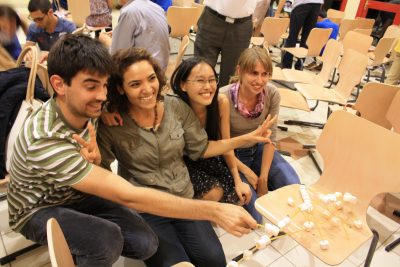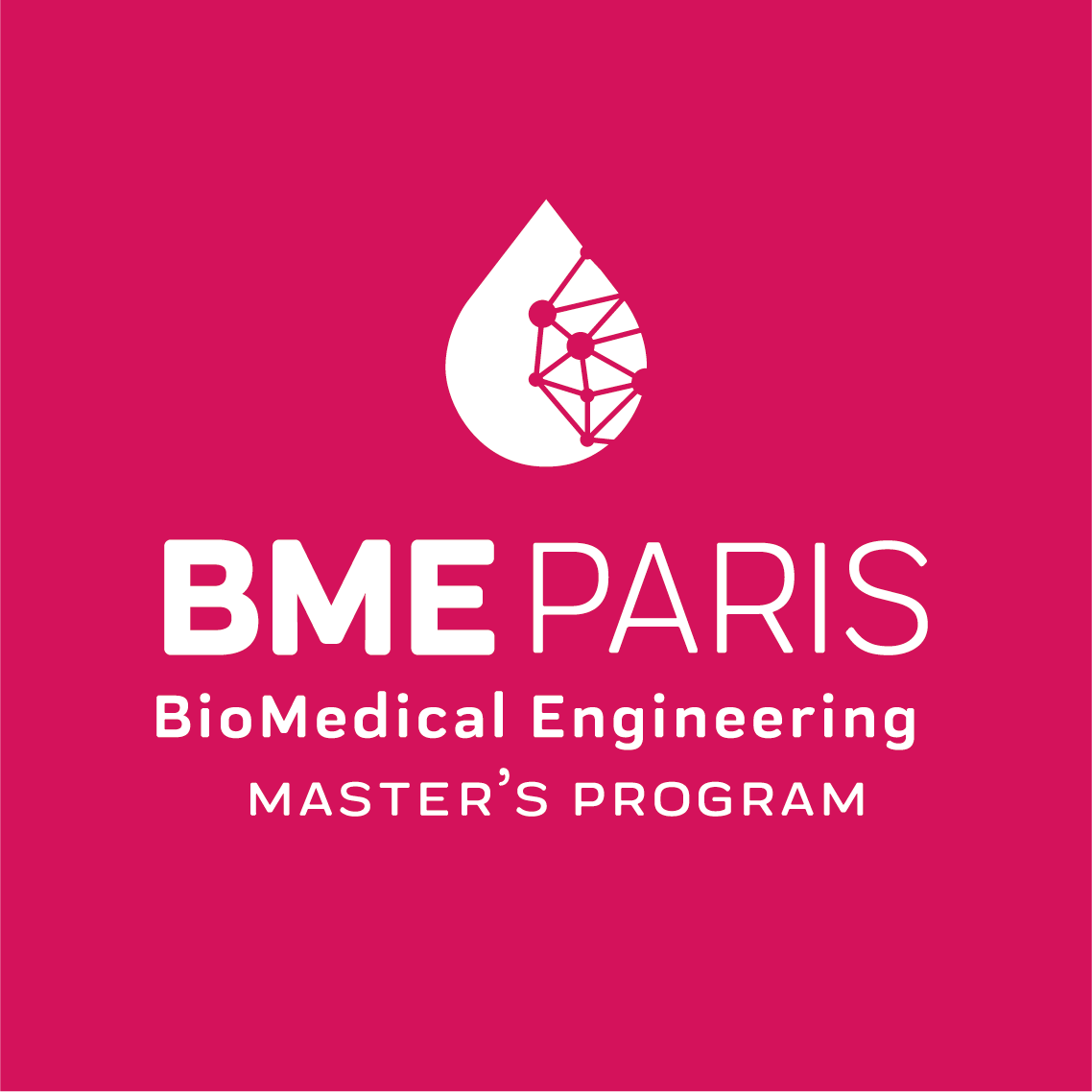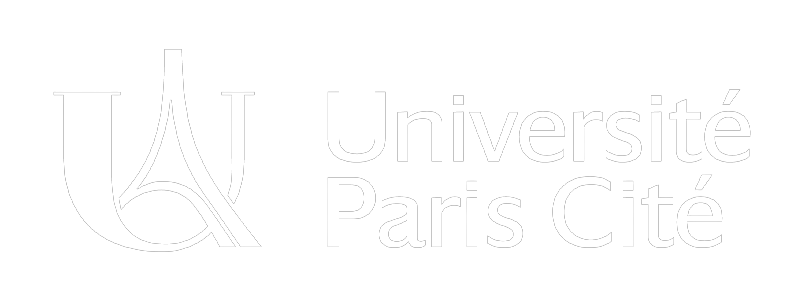Program
Master Program in Biomedical Engineering
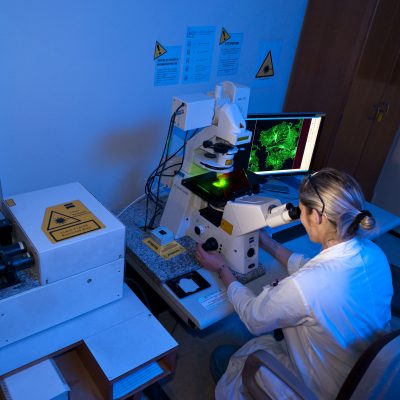 The Health Engineering Master’s program (BME Paris) is designed to provide a two-year education in the field of bioengineering, at the intersection of biomedical sciences and engineering sciences. It results from a partnership between Université Paris Cité and Arts et Métiers .
The Health Engineering Master’s program (BME Paris) is designed to provide a two-year education in the field of bioengineering, at the intersection of biomedical sciences and engineering sciences. It results from a partnership between Université Paris Cité and Arts et Métiers .
The Master’s program is based on a distinctive partnership that fosters an interdisciplinary approach, encourages student initiatives and promotes a global perspective. This policy is supported by the top-level and complementary expertise and know-how of the two partners: engineering science in the engineering school within Arts et Métiers, on the one hand, and biomedical and health science at Université Paris Cité, on the other.
The teaching staff are primarily drawn from the partner institutions. Guest lecturers include hospital clinicians from APHP and researchers from other schools and academic institutions as well as from private companies (e.g. GE Healthcare, Philips Healthcare, Renault, Sanofi, Thalès, Materialise Medical, etc.).
Learning outcomes
The BME Paris Master offers an exemplary program of excellence designed for students from diverse backgrounds, including biology, chemistry, physics, mathematics, engineering, medicine, pharmacy, health sciences and computer sciences. The primary objectives of the Master’s program are:
- to provide students with the knowledge and tools required in a wide range of the biomedical engineering fields
- to foster a fruitful collaborative spirit between engineering and medical students, with the ultimate goal of bridging the existing « culture gap » between the corresponding professions.
While the second year (M2) offers five specialization tracks, the first year (M1) is devoted to strengthening and broadening students’ skills in specific engineering and biomedical subjects. Students receive guidance on their selection of teaching units, ensuring they are current with essential science subjects that might not have been covered in their prior studies. For example, engineering students may focus on physiology and anatomy, whereas biology or medical students may focus into signal processing and mechanics.
Become a part of the outstanding BME Paris community
50% of international students
Curriculum
In M1 (semesters 1 and 2), there is one single track, with individualized choices of courses according to students’ backgrounds and their choice of specialization for M2.
The M2 (semesters 3 and 4) offers five tracks:
All students are trained in a common core of competencies, regardless of their chosen M2 specialization. These include scientific communication, research methodology, health data science, biomedical innovation, and the ethical, industrial and environmental aspects of biomedical engineering. Additionally, students have the option of receiving certification in digital health.
Two 2-month-long (or a single 4-month-long, if performed abroad) internships in M1 and one 5- to 6-month-long internship in M2 are a mandatory part of the program. Internships typically occur in academic labs affiliated with partner institutions. They can also be undertaken in R&D departments of major companies, biomedical startups, or hospitals.
Career opportunities
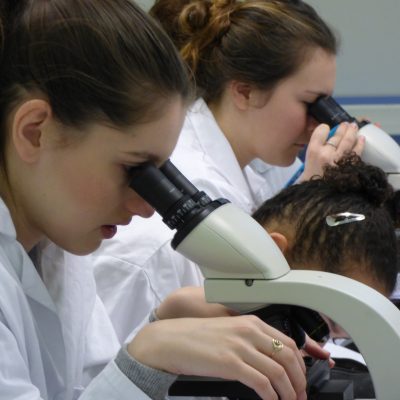 Pursue a PhD related to the M2 track taken by the student, either in academia or in collaboration with a company (CIFRE PhDs).
Pursue a PhD related to the M2 track taken by the student, either in academia or in collaboration with a company (CIFRE PhDs).- R&D roles in large corporations or startups across various biomedical and biotech sectors.
- Continue to medical or pharmacy school, or enter it (via « passerelle ») in either the 2nd or 3rd year.
- Engage in business programs focusing on biotech management (e.g., ESCP, EM Lyon/Centrale Supelec, etc.).
- • Université Paris Cité (such as Integrative Neuroscience and Cognition Center, Institut de Psychiatrie et Neurosciences de Paris, MSC Med, Centre Borelli, Environmental Toxicity, Therapeutic Targets, cellular Signaling and biomarkers, Unité des Technologies Chimiques et Biologiques pour la Santé (UTCBS), The Paris Cardiovascular Research Center (PARCC) etc.)
• Columbia University, Department of Biomedical Engineering (New York)
• Hangzhou Dianzi University (HDU, China).
• ENS (like Institut de Biologie de l’ENS, Laboratoire des Systèmes Perceptifs, Laboratoire PASTEUR, etc.)
• Collaborate with Institut Pierre-Gilles de Gennes.
• Connect with Arts et Métiers and its Institut de Biomécanique Humaine Georges Charpak.
• Collaborate with Telecom ParisTech.
• Engage with Neurospin located in Saclay.
• Partner with EPFL in Lausanne.
Location
The majority of classes are held in central Paris, primarily at Université Paris Cité, Arts et Métiers.These locations are within walking distance of each other. For certain tracks, opportunities exist for students to attend lectures and scientific conferences outside of Paris.


